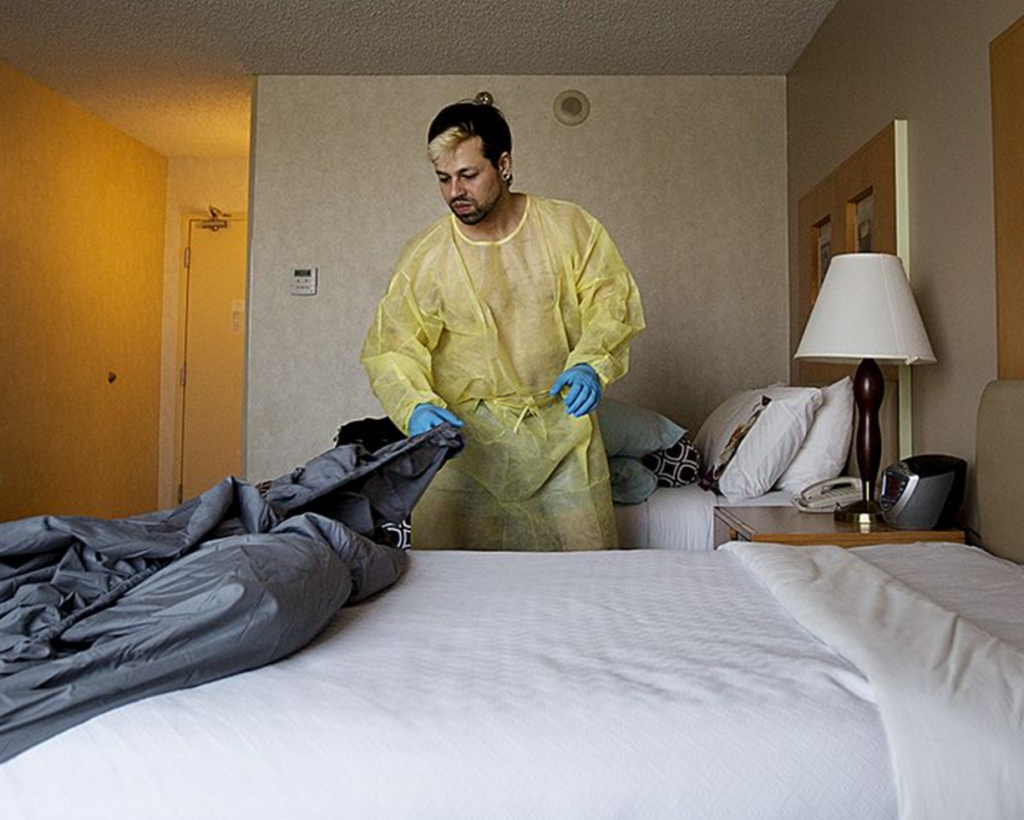Josiah Zayner is a self-described biohacker who used to work at NASA and now runs a company that sells home science kits. He’s suffered from painful gastrointestinal problems for years, so he decided to conduct a DIY refresh of his gut bacteria. There’s no need to dance around this: Zayner consumed his friend’s shit in pill form. (For more background info, check out The Fecal Transplant Foundation’s website.) Arielle Duhaime-Ross wrote a fascinating article about this radical effort.

Photo by Vjeran Pavic for The Verge.
Zayner wasn’t deterred by the medical professionals who unanimously thought his idea was terrible:
“Of the nine biology and medical professionals [the journalist] spoke with, every single one stressed that Zayner’s experiment could make him very sick. Zayner vowed not to analyze his donor’s feces — it contradicted, he said, the DIY ethos of the experiment and could make the project seem less accessible to laypeople. As a result, he was putting himself at risk for hepatitis, rotavirus, and a whole slew of other pathogens and parasites. And his decision to take antibiotics to kill his own bacteria before the transplant was risky, said OpenBiome’s Osman. Some people carry C. diff without any symptoms; if Zayner was one those people, disrupting the balance in his gut could enable C. diff to flourish — and the consequences of that could be life-threatening.”
Spoiler alert: Zayner is okay so far, and he reports that his gastrointestinal problems have improved. (Anecdotal evidence, to be sure, but not entirely meaningless.) His stated motivation of encouraging science as a means of liberation is admirable:
“I just want people to be able to be free. Free to explore this reality. I think all other freedoms come from this one. Freedom to have access to information and tools and resources. It is hard to oppress people without controlling what information they possess.”
Zayner’s point is reinforced by the panicky behavior of dictators — see Turkish president Erdogan’s current absurd (but terrifying) attempts to curb criticism of his regime.
Zayner also did a Reddit AMA after the article was published. One commenter critiqued Zayner’s “vigilante” approach because it didn’t contribute to the scientific community’s aggregate knowledge:
“The fact that the general populace think your results mean something doesn’t mean anything. They don’t have the scientific background to draw conclusions from your results. […] The fact that you cannot publish your results [in a peer-reviewed journal] means prominent members of the scientific community disagree with what you have done, and are saying your results cannot be trusted.”
Zayner disagreed with this characterization, responding:
“Just because the authority is not doing something, or does not believe in something, does not mean it is not possible or doesn’t exist. Every scientific discovery has ended decades of ‘actual scientists’ being dead wrong.”
Personally, I think we need both. We need university-sanctioned studies and we need biohackers. We need work that establishes ground rules and work that pushes limits. Luckily, both will persist.


